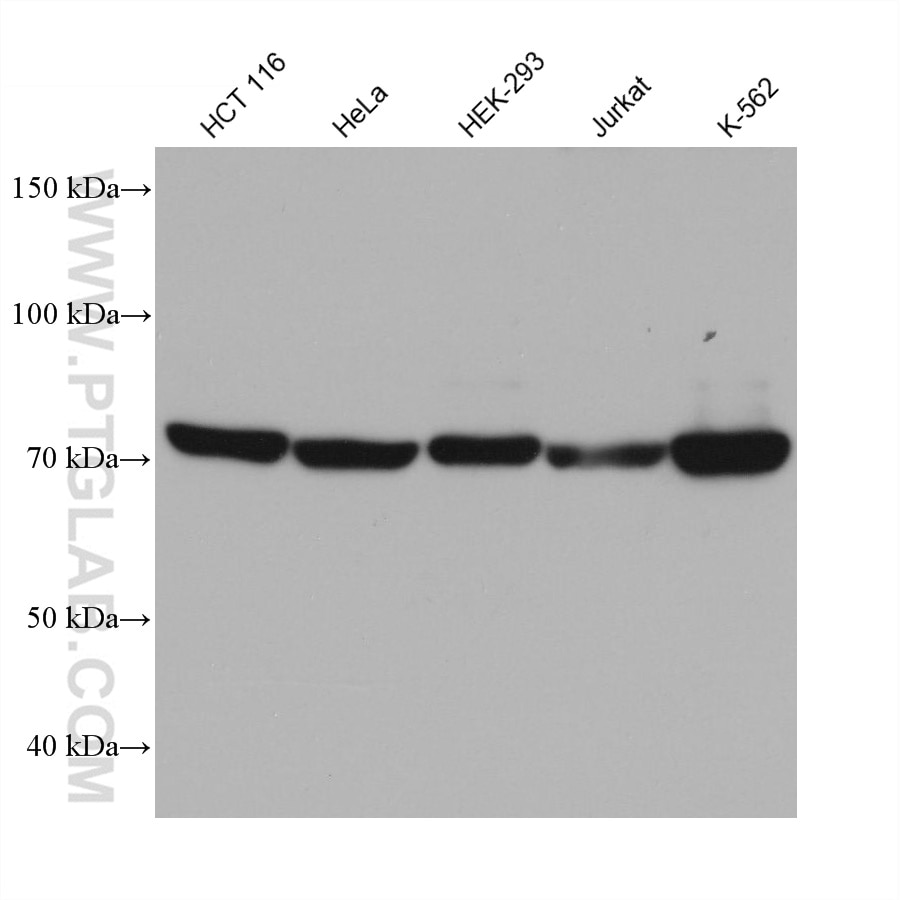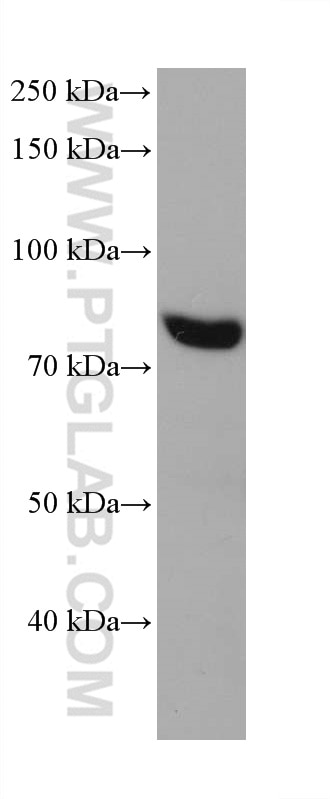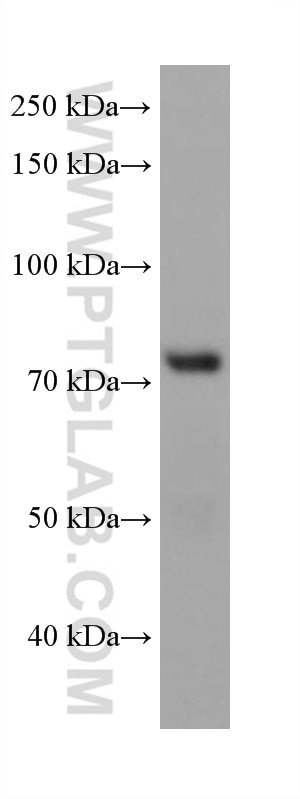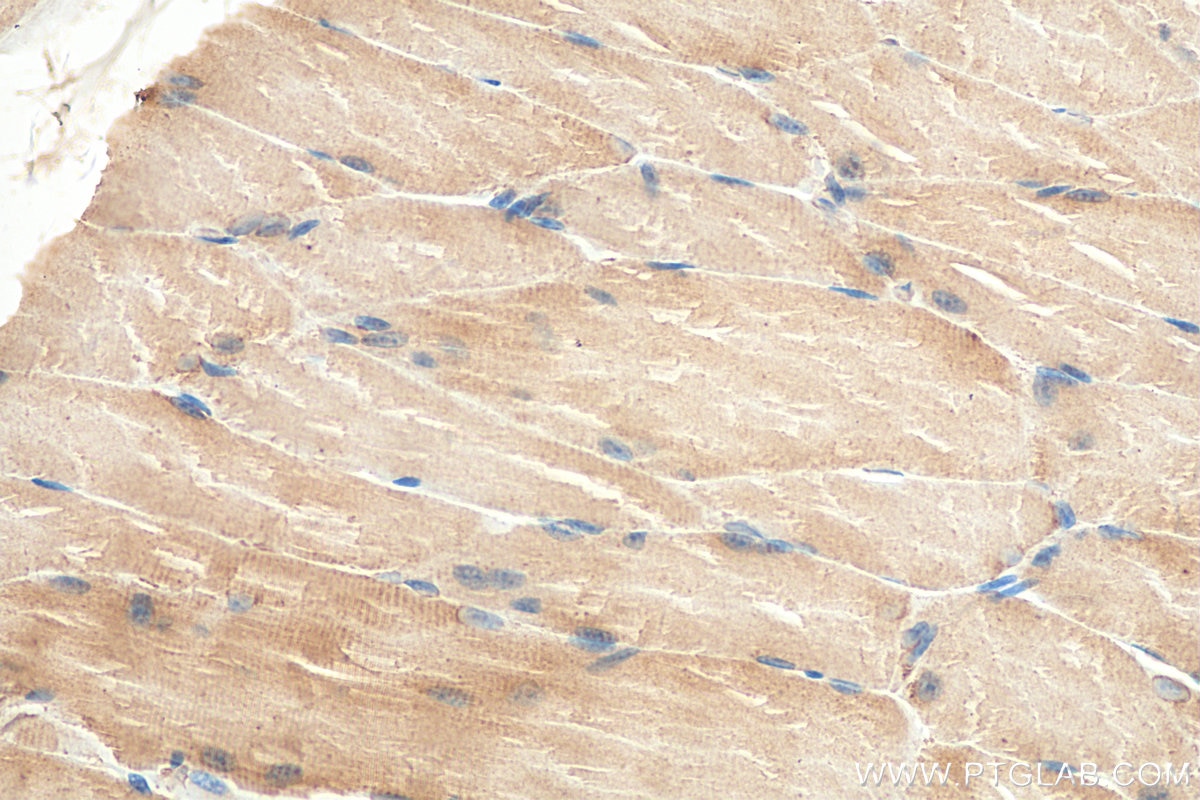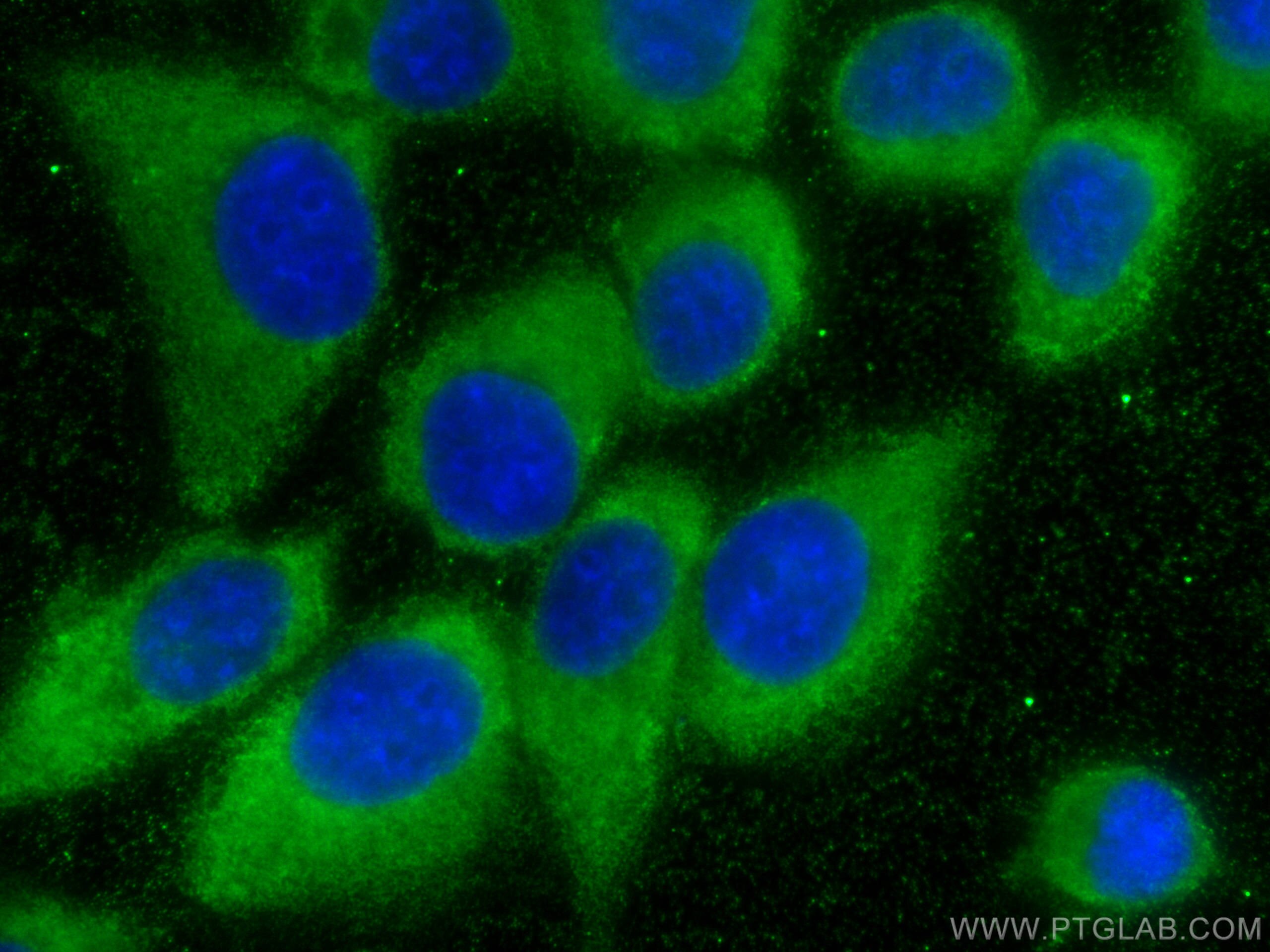PABPC4 Monoklonaler Antikörper
PABPC4 Monoklonal Antikörper für WB, IHC, IF/ICC, Indirect ELISA
Wirt / Isotyp
Maus / IgG1
Getestete Reaktivität
human, Maus, Ratte
Anwendung
WB, IHC, IF/ICC, Indirect ELISA
Konjugation
Unkonjugiert
CloneNo.
1E6B3
Kat-Nr. : 68187-1-PBS
Synonyme
Geprüfte Anwendungen
Produktinformation
68187-1-PBS bindet in WB, IHC, IF/ICC, Indirect ELISA PABPC4 und zeigt Reaktivität mit human, Maus, Ratten
| Getestete Reaktivität | human, Maus, Ratte |
| Wirt / Isotyp | Maus / IgG1 |
| Klonalität | Monoklonal |
| Typ | Antikörper |
| Immunogen | PABPC4 fusion protein Ag6813 |
| Vollständiger Name | poly(A) binding protein, cytoplasmic 4 (inducible form) |
| Berechnetes Molekulargewicht | 70 kDa |
| Beobachtetes Molekulargewicht | 71 kDa |
| GenBank-Zugangsnummer | BC065540 |
| Gene symbol | PABPC4 |
| Gene ID (NCBI) | 8761 |
| Konjugation | Unkonjugiert |
| Form | Liquid |
| Reinigungsmethode | Protein-G-Reinigung |
| Lagerungspuffer | PBS only |
| Lagerungsbedingungen | Store at -80°C. 20ul Größen enthalten 0,1% BSA. |
Hintergrundinformationen
Poly(A)-binding protein (PABP), a nucleocytoplasmic shuttling protein, has a fundamental role in promoting gene expression by enhancing mRNA translation and stability(PMID: 21940797). Poly(A)-binding protein 4 (PABPC4), one of the homologs of PABP, was initially identified as a human T-cell activation-induced protein. PABPC4 may also be involved in the regulation of protein translation in platelets and megakaryocytes or may participate in the binding or stabilization of polyadenylates in platelet dense granules(NCBI).
